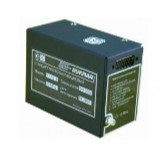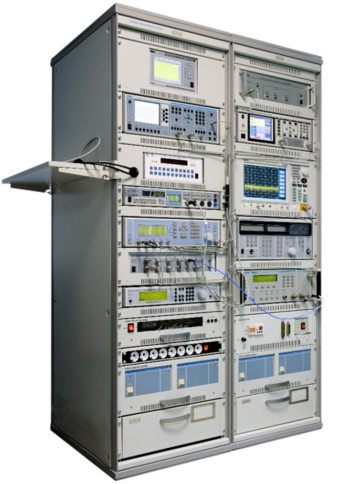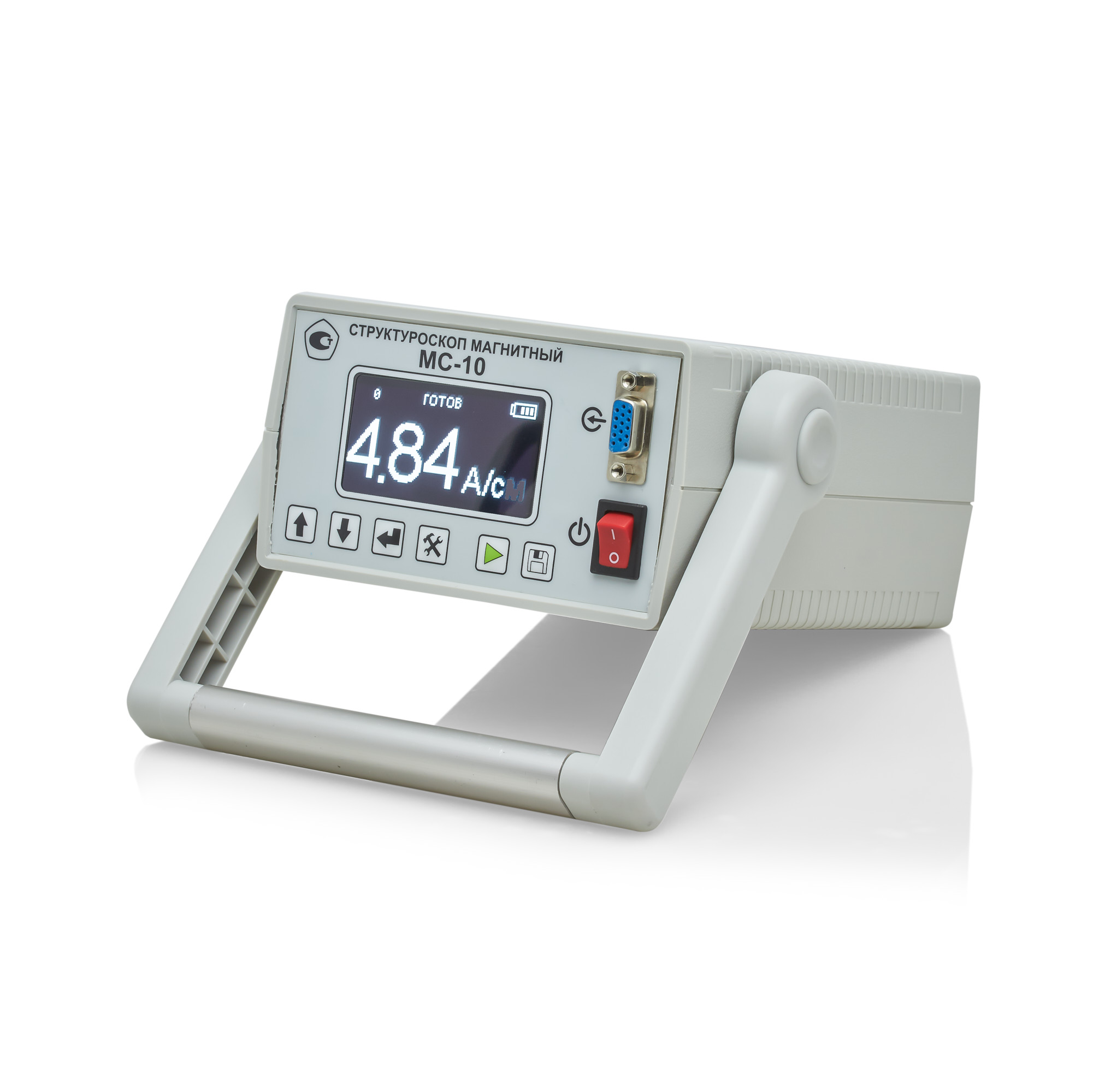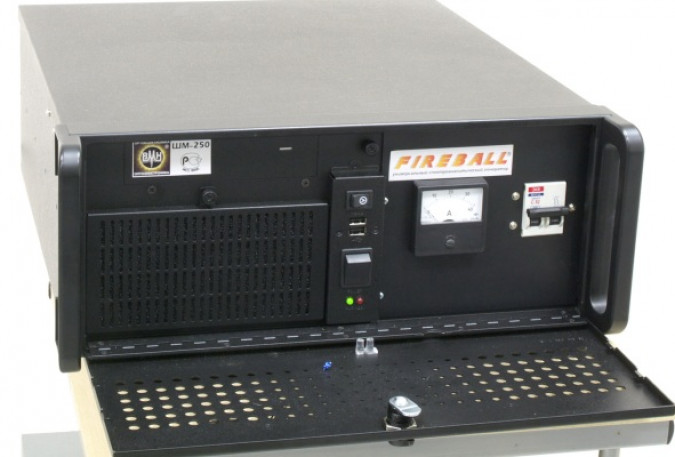Catalog
Equipment
2226 products
View:
- Selected: 0Areas of use
- Selected: 0Item names
- Selected: 0Manufacturer
- Selected: 0Made in
- Selected: 0Additional
View:
2226 products


Rubidium frequency standard H1-1012
The Ch1-1012 frequency standard is designed for mobile applications with high requirements for dimensions, weight and power consumption as an embedded signal source of high stability in frequency measuring devices and complexes, telecommunication systems, navigation and communication systems.
This device can serve as a promising substitute for quartz generators in the development of high-resolution equipment, where the accuracy characteristics of a quartz generator are no longer sufficient.
Ruknar
Nizhny Novgorod
Produced in: Nizhny Novgorod

Smart submersible reinforced probe L=500 mm SZPGU.500
from
12 972 ₽
The smart submersible reinforced probe L=500 mm SZPGU.500 is designed to measure the temperature of various materials by direct contact of the probe with the measuring object and transmitting the measured value via Bluetooth to devices with the ThermoMonitor, Android program installed.
Operating conditions of the SZPGU.500 smart probe
Ambient temperature, °C: -20...+55.
Relative humidity, %: not more than 80 at T=35 °C.
Atmospheric pressure, kPa: 86...106.
Functionality of the SZPGU.500 smart probe
Measurement of physical quantities with a resolution of 0.01.
Recording of measured values at intervals from 5 seconds to 23 hours 59 minutes 59 seconds (only smart probes with built-in memory).
Transmitting data about measured physical quantities via Bluetooth to a device with the ThermoMonitor, Android program installed.
Transmitting information about the state of charge of the built-in battery via Bluetooth to a device with the ThermoMonitor, Android program installed.
Automatic transition to sleep mode after 50 seconds.
The ability to connect external power.
Possibility of calibration.
TEKHNO-AS
Kolomna
Produced in: Kolomna, Moscow region

X-ray Radiation Dosimeter clinical DRK-1M-CT
Purpose:
measurement of the product of the air kerma by length, followed by the calculation of the CTDI tomographic dose index (using the CTDI phantom) for the following calculation of the effective dose received by the patient;
monitoring the stability of medical X-ray machines during their operation;
calculation of the dose index of a computer tomograph (MPCT) according to GOST R IEC 61223-2-6-2001.
Doza
Zelenograd
Produced in: Moscow

PM-8 verification module
The composition of the PM-8 verification module
Frequency comparator CHK7-1011;
Universal frequency meter Ch3-89;
AC voltage voltmeter VK3-78A;
Universal voltmeter V7-81;
AC voltage calibrator H5-5;
High-frequency signal generator G4-227;
High-frequency signal generator G4-229;
High-frequency signal generator G4-230;
Absorbed power wattmeter M3-108;
Installation for measuring attenuation D1-24/1;
Device for measuring attenuation stepwise D1-25;
Computational modulation meter SK3-49;
The meter-calibrator of the harmonic coefficient SK6-20;
Spectrum analyzer SK4-"Belan 240";
VSWR panoramic meter R2-135;
VSWR panoramic meter R2-137;
A set of exemplary measures of the transmission coefficient H3-7;
Oscilloscope S1-157/4;
DC power supply B5-79/1;
AC power source B2-7 (2 pcs.);
Electronic switch of microwave signals;
PC, printer;
Basic load-bearing structures (BNC).
Technical specifications
Measuring ranges of electrical quantities:
Constant electrical voltage from 3 MV to 1000 V
Alternating electric voltage in the frequency range of 10 Hz ... 2000 MHz from 10 mV to 100 V
Frequency of continuous electromagnetic oscillations from 0.001 Hz to 17.85 GHz
The power of continuous electromagnetic oscillations in the frequency range of 20 MHz ... 17.85 GHz from 0.8 to 10 MW
Attenuation of electromagnetic oscillations in the frequency range 0.1 MHz ... 17.85 GHz from 0 to120 dB
VSWR in the frequency range 0.2 ... 17.85 GHz from 1.03 to 2
Harmonic coefficient in the frequency range of 10 Hz ... 8 GHz from 0.005 to 100 %
The amplitude modulation coefficient in the carrier frequency range of 100 kHz ... 17.85 GHz from 0.1 to 100 %
Frequency deviation in the carrier frequency range of 100 kHz ... 17.85 GHz from 5 Hz to 1 MHz
Phase modulation index in the carrier frequency range 100 kHz ... 17.85 GHz from 1 to 100 radians
Phase shift between two harmonic signals in the frequency range 0.1 MHz ... 17.85 GHz from 0 to 360o
Ranges of reproduction of electrical quantities:
Alternating electrical voltage in the frequency range of 10 Hz ... 2000 MHz from 3 MV to 3 V
Harmonic (sinusoidal) signal at a load of 50 ohms in the frequency range of 0.001 Hz ... 30 MHz from 0.01 to 5 V
Continuous electromagnetic oscillations in the frequency range of 9 kHz ... 17.85 GHz from minus 120 to 13 dBm
5 and 10 MHz reference frequency signal
Attenuation of electromagnetic oscillations in the frequency range 0 ... 3 GHz from 0 to 86 dB
Measurement errors of electrical quantities:
Constant electrical voltage ± (0.0025 ... 16.7) %
Alternating electric voltage in the frequency range 10 Hz ... 2000 MHz ± (0.2 ... 16) %
Frequency of continuous electromagnetic oscillations ± (2·10-7 ... 4·10-3)
Power of continuous electromagnetic oscillations in the frequency range 20 MHz ... 17.85 GHz ± (4 ... 6) %
Attenuation of electromagnetic oscillations in the frequency range 0.1 MHz ... 17.85 GHz ± (0.01 ... 1.2) dB
VSWR in the frequency range 0.2 ... 17.85 GHz ± (3 ... 5) K
Harmonic coefficient in the frequency range 10 Hz ... 8 GHz ± (0.005 ... 6) %
Amplitude modulation coefficient in the carrier frequency range 100 kHz ... 17.85 GHz ± (0.1 ... 9) %
Frequency deviation in the carrier frequency range 100 kHz ... 17.85 GHz ± (0.2 ... 80) Hz
Phase modulation index in the carrier frequency range 100 kHz ... 17.85 GHz ± (0.02 ... 5) radians
Phase shift between two harmonic signals in the frequency range 0.1 MHz ... 17.85 GHz ± (0.01 ... 0.08) o
Errors in the reproduction of electrical quantities:
Alternating electrical voltage in the frequency range 10 Hz ... 2000 MHz ± (0.16 ... 10) %
Harmonic (sinusoidal) signal at a load of 50 ohms in the frequency range 0.001 Hz ... 30 MHz ± (3 ... 5) %;
Continuous electromagnetic oscillations in the frequency range of 9 kHz ... 17.85 GHz ± (0.5 ... 3) dB
5 and 10 MHz reference frequency signal ± (2·10-11 – 2,4·10-10)
Attenuation of electromagnetic oscillations in the frequency range 0 ... 3 GHz ± (0.2 ... 1.4) dB
General technical characteristics:
The area occupied by the module is 6-12 m2
Weight, not more than 550 kg
Power supply voltage from 198 to 242 V with a frequency of (50 ± 0.5) Hz
Power consumption, no more than 3000 VA
TEKHNOYAKS
Moscow
Produced in: Moscow

Radiation monitoring system "Frigate"
A simple and inexpensive radiation monitoring system for radiation-hazardous facilities, such as radionuclide source storages, isotope warehouses, clinical radionuclide diagnostics and therapy departments, PET centers, metrological laboratories where work with ionizing radiation sources is carried out, etc.
Doza
Zelenograd
Produced in: Moscow

MS-10 Magnetic Structuroscope
from
310 500 ₽
Distinctive features:
- Non-destructive testing of strength, plasticity and viscosity of parts and structures made of ferromagnetic steels and cast iron according to the following standards: GOST 30415-96, OST 14-1-184-65, TU-14-1016-74
- Non-destructive testing of the depth and hardness of surface-hardened layers on steel and cast iron parts;
- Quality control of low-temperature tempering of cutting and measuring tools, bearing steels;
- Control of uniaxial elastic stresses;
- Control of the uniformity of the properties of massive parts.
Technical specifications:
The range of coercive force of the material of the controlled products, A/cm, is 1.0...60.
The limit of the permissible basic absolute error of measurements of the coercive force (Ns) on standard samples at a normal ambient temperature of 20 ± 5°C does not exceed the values of 0.1+0.04 Ns
(Ns stands for the measured value of the coercive force of the standard sample).
This error probability is provided with a gap between the converter and the surface of the controlled product not exceeding 0.5 mm.
Basic version: The structroscope is powered by a battery.
Extended version: It is possible to work on 220V/50Hz grid.
The time of setting the operating mode after power on, min: no more than 2
Time of one measurement, sec: no more than 6
Continuous operation time (without recharging), h: at least 16
Internal memory: up to 512 series of 512 measurements each with the possibility to view the results
Operating temperature range: -20°C to +40°C;
Overall dimensions, (length x width x thickness), mm:
electronic unit: 190x140x80
converter: 135x75x100
Weight, kg:
the electronic unit with a battery: 2.3 ± 0.05
the converter: 1.3± 0.05
Basic version kit:
Ia5.173.023 Electronic unit: 1 pc.
Ia5.125.061 Converter: 1 pc.
Ia8.896.121 Control sample of coercive force (plate PN-1): 1 pc.
Ia8.896.122 Control sample of coercive force (plate PN-2): 1 pc.
Bag-case: 1 pc.
Charger: 1 pc.
Ia2.778.042 RE Operating Manual: 1 copy.
Ia2.778.042 FO Form: 1 copy.
Ia2.778.042 MP Verification instructions: 1 copy.
Extended version:
Additionally, it can be equipped with a Bluetooth® module for communication with a PC and software for receiving and processing data.
It can also be equipped with a small-sized converter.
RII MNPO SPEKTR
Moscow
Produced in: Moscow

INDOR-S-M
It is designed to obtain the values of the effective radiation dose for 46 types of X-ray examinations of patients of any age
NMT-ZASHCHITA
Moscow
Produced in: Moscow

Search and diagnostic complex for finding cable damage by acoustic and induction method Athlete KAI-2.1001
Appointment Athlete KAI-2.1001
• Determination of the type of damage and the distance to the place of damage to the cable.
• Tracing a cable line up to 10 km.
• Determination of cable depth up to 6 m.
• Troubleshooting of cable lines by induction method.
• Troubleshooting of cable lines by acoustic method.
• Cable insulation testing.
TEKHNO-AS
Kolomna
Produced in: Kolomna, Moscow region

Dosimetric thermoluminescent complex "DOSE-TLD"
Purpose:
measurement of the individual dose equivalent of Hp(10) photon radiation;
measurement of the individual dose equivalent of Hp(10) neutron radiation;
measurement of the individual dose equivalent in the skin Hp(0.07) and the lens of the eye Hp(3) of photon and beta radiation;
measurement of ambient dose equivalent H*(10) of photon radiation.
Doza
Zelenograd
Produced in: Moscow

Spectroanalytical generator "Ball lightning"
The generator is designed to produce an electric arc and spark discharge in atomic emission spectral analysis installations. The generator is designed specifically for use in spectral analysis of samples of complex composition for simultaneous determination of impurity and alloying components in a wide range of concentrations.
VMK OPTOELEKTRONIKA
Novosibirsk
Produced in: Novosibirsk

Multichannel analyzer of atomic emission spectra of MAES
The MAES analyzer is a modern means of measuring the intensities of spectral lines and then calculating the concentrations of the elements to be determined.
VMK OPTOELEKTRONIKA
Novosibirsk
Produced in: Novosibirsk
